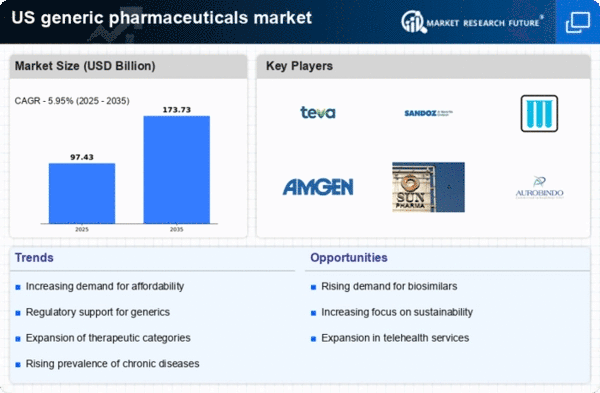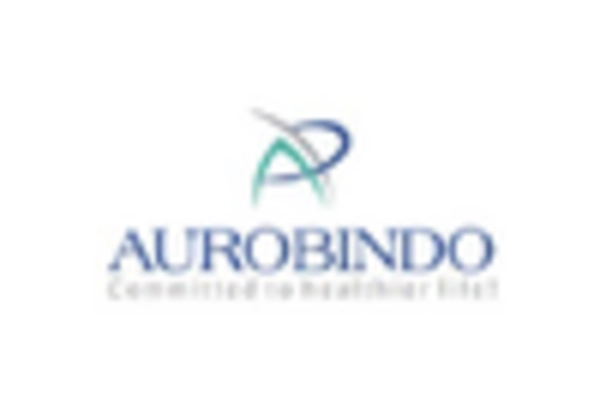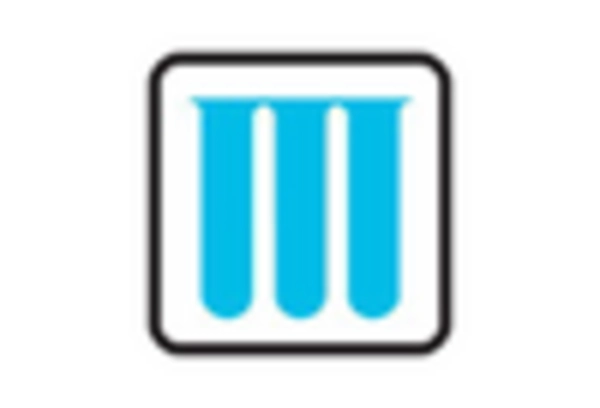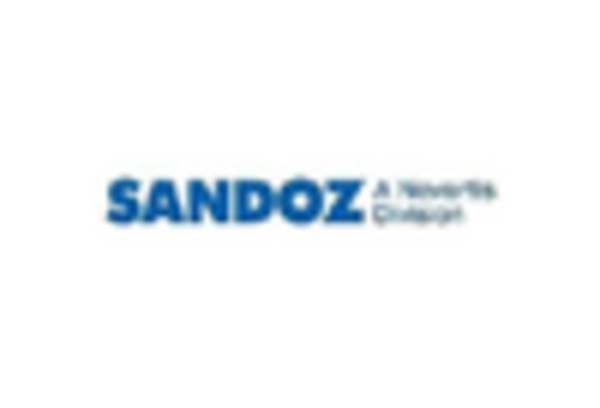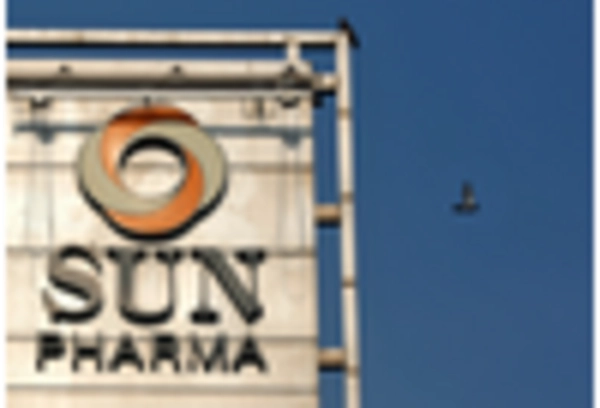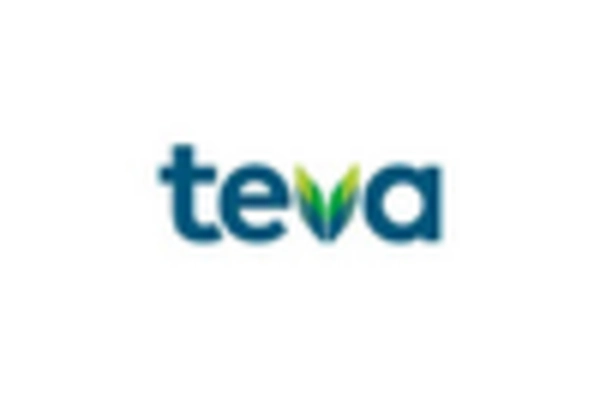Increasing Healthcare Costs
The escalating costs associated with healthcare in the US are driving the growth of the generic pharmaceuticals market. As patients face higher out-of-pocket expenses, there is a growing demand for affordable medication alternatives. In 2025, healthcare spending is projected to reach approximately $4.3 trillion, prompting consumers and healthcare providers to seek cost-effective solutions. Generic medications, which can be up to 85% cheaper than their branded counterparts, are becoming increasingly attractive. This trend is likely to continue as more patients prioritize affordability, thereby expanding the market for generic pharmaceuticals. The increasing financial burden on consumers is a significant factor influencing their purchasing decisions, leading to a shift towards generic options.
Expansion of Online Pharmacies
The rise of online pharmacies in the US is reshaping the landscape of the generic pharmaceuticals market. With the convenience of purchasing medications online, consumers are increasingly turning to digital platforms for their pharmaceutical needs. In 2025, it is estimated that online pharmacy sales will account for a significant portion of the market, driven by the desire for convenience and competitive pricing. This trend is particularly beneficial for generic drugs, which are often marketed at lower prices compared to branded alternatives. The accessibility of generics through online channels may enhance consumer awareness and adoption, thereby contributing to the overall growth of the generic pharmaceuticals market. As e-commerce continues to evolve, it is likely to play a pivotal role in shaping consumer behavior and market dynamics.
Regulatory Support for Generic Drugs
Regulatory bodies in the US, such as the FDA, are actively promoting the use of generic pharmaceuticals to enhance competition and reduce drug prices. The implementation of the Drug Price Competition and Patent Term Restoration Act has facilitated the entry of generics into the market, allowing for a more diverse range of affordable medications. In 2025, the FDA has approved over 1,000 generic drugs, reflecting a robust pipeline that supports the growth of the generic pharmaceuticals market. This regulatory environment not only encourages manufacturers to develop generics but also reassures consumers about the safety and efficacy of these alternatives. As regulations continue to evolve, they are likely to further bolster the market for generic pharmaceuticals.
Aging Population and Chronic Diseases
The demographic shift towards an aging population in the US is significantly impacting the generic pharmaceuticals market. By 2025, it is estimated that over 20% of the population will be aged 65 and older, leading to an increased prevalence of chronic diseases such as diabetes and hypertension. This demographic trend is expected to drive demand for medications, particularly generics, as older adults often require long-term treatment regimens. The affordability of generic drugs makes them a preferred choice for this demographic, which is likely to contribute to the expansion of the market. As healthcare providers seek to manage costs while ensuring patient access to necessary medications, the generic pharmaceuticals market stands to benefit from this growing need.
Rising Focus on Preventive Healthcare
There is a notable shift in the US healthcare landscape towards preventive care, which is influencing the generic pharmaceuticals market. As healthcare providers emphasize the importance of early intervention and management of health conditions, the demand for generic medications that support preventive measures is likely to increase. In 2025, spending on preventive services is projected to rise, reflecting a broader trend towards maintaining health rather than solely treating illness. This focus on prevention may lead to greater utilization of generics, particularly in areas such as cholesterol management and hypertension, where long-term medication adherence is crucial. Consequently, the generic pharmaceuticals market may experience growth as patients and providers prioritize cost-effective preventive solutions.


